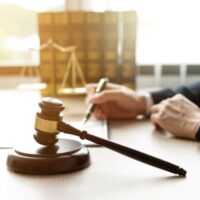Voir Dire and Jury Selection in Car Accident Cases: Understanding What Florida Jurors Think About Injury Claims

When a car accident case goes to trial in Florida, one of the most important phases is jury selection, also known as voir dire. This process gives attorneys the chance to question potential jurors, evaluate biases, and build a fair jury panel. Because personal injury cases often involve deeply personal experiences and strong opinions about lawsuits, voir dire can determine how receptive a jury will be to the evidence and arguments presented.
Working with an experienced West Palm Beach automobile accident attorney can help ensure that your case is presented to jurors who are capable of weighing the facts fairly.
Why Jury Selection Matters in Florida Car Accident Cases
Jurors bring their own life experiences, values, and opinions into the courtroom. Some may believe injury claims are exaggerated, while others may sympathize strongly with accident victims. In a state like Florida, where car crashes are unfortunately common, many jurors may have personal stories about auto accidents, insurance battles, or lawsuits. These experiences can shape how they view a case.
The voir dire process allows attorneys to uncover these perspectives. For example, a juror who has been involved in prior litigation with an insurance company might either distrust insurers or assume all lawsuits are unnecessary. Identifying such attitudes is crucial to ensure that the trial proceeds with jurors who can fairly assess testimony and evidence.
Florida Law on Voir Dire
Florida Statutes and court rules allow both the plaintiff and defense to question potential jurors before trial. Under Florida Rule of Civil Procedure 1.431, attorneys may ask questions designed to reveal potential biases, conflicts of interest, or preconceived opinions. The judge also plays an active role in ensuring that jurors meet the legal qualifications to serve.
Attorneys can then challenge prospective jurors in two ways:
- For cause challenges: Used when a juror shows clear bias or a legal reason exists to disqualify them. For example, a juror who admits they cannot be impartial due to strong views about lawsuits may be dismissed for cause.
- Peremptory challenges: Each side has a limited number of these, allowing them to strike jurors without giving a reason, as long as the decision is not based on race, gender, or other discriminatory grounds.
Common Attitudes Jurors Hold About Car Accident Claims
During voir dire, attorneys often encounter recurring themes in how jurors think about car accident lawsuits. Some believe personal injury claims are a way to “get rich quick,” while others may assume that medical expenses are exaggerated. On the other hand, many jurors understand the serious toll that injuries like whiplash, fractures, or spinal cord damage can have on a person’s ability to work and live normally.
Research into jury behavior shows that attitudes about insurance companies also play a major role. Some jurors sympathize with victims because they believe insurers often deny or underpay valid claims. Others may view lawsuits as driving up the cost of insurance for everyone. By asking thoughtful questions, attorneys can identify these viewpoints and strike a balance on the jury panel.
Strategies Attorneys Use in Voir Dire
Effective jury selection requires both preparation and intuition. Attorneys often use open-ended questions to encourage potential jurors to share their true feelings. Instead of asking, “Can you be fair in this case?” to which most will say yes, attorneys may ask, “How do you feel about lawsuits for pain and suffering?” This allows them to see who may be skeptical of awarding non-economic damages.
Another common strategy is to explore jurors’ work backgrounds and life experiences. A juror who works in the medical field may have strong opinions about treatment costs, while someone employed by an insurance company may lean toward minimizing payouts. Attorneys carefully consider these factors when deciding whom to challenge.
The Judge’s Role in Jury Selection
In Florida courts, judges oversee voir dire and set limits on the types of questions attorneys may ask. Judges can also dismiss jurors for cause if it becomes clear they cannot be impartial. The goal is to seat a jury that can decide the case solely on the evidence presented at trial, not on personal opinions or preconceived beliefs.
Why Jury Selection Impacts Case Outcomes
The jury ultimately decides key issues in a car accident case: whether the defendant was negligent, whether the plaintiff was injured as a result, and how much compensation should be awarded. A jury that is skeptical about injury claims may undervalue damages, while one that is sympathetic to victims may fairly recognize the long-term impact of medical bills, lost wages, and pain and suffering.
Because the jury has so much power, the voir dire process is often as important as the testimony that follows. Skilled attorneys know that building trust with the jury begins even before opening statements.
Contact Smith, Ball, Báez & Prather
If you have been injured in a Florida car accident, understanding how juries think can make a major difference in your case. At Smith, Ball, Báez & Prather, we carefully approach jury selection to ensure that your story is heard by fair and open-minded jurors. Contact us today to schedule a free consultation and learn how we can fight for your rights from start to finish.
Sources:
Florida Rules of Civil Procedure – Rule 1.431 (updated June 19, 2025)
Florida Courts – Florida Jury Management Resource Manual (updated May 14, 2024)
